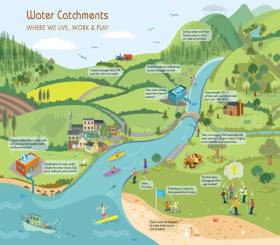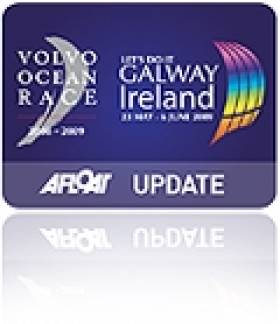Displaying items by tag: Tidy Towns
New Waters & Communities Awards For Tidy Towns 2017
#InlandWaters - Waterways Ireland has partnered with Inland Fisheries Ireland and Local Authority Waters and Communities Office to create a new Tidy Towns Special Award for 2017.
The Waters and Communities Award and has been established to recognise communities who are taking positive steps towards raising awareness and showing appreciation of their local rivers, canals, lakes, streams, coast and ground water.
Four Regional Award winners will receive €1,000 each, with €500 each for four Regional Runner Up winners. There will also be a prize of €1,000 for the overall winner of the four regions.
All entries will be assessed by a panel of judges appointed by Inland Fisheries Ireland, Waterways Ireland and the Local Authority Waters and Communities Office.
You can apply for this award by downloading and filling out the entry form (also available as Gaeilge) and returning it before the closing date of Thursday 25 May by email at [email protected] or post to:
TidyTowns Waters and Communities Award
TidyTowns Unit
Department of Arts, Heritage, Regional, Rural & Gaeltacht Affairs
Government Offices
Ballina, Co Mayo
F26 E8N6
Volvo Ocean Race Brings Galway and Abu Dhabi Closer Together
#VOLVO OCEAN RACE - A golden dhow presented to the city of Galway by the Abu Dhabi Sailing and Yacht Club marks the new connection between these host ports of the 2011-2012 Volvo Ocean Race.
The Galway Advertiser reports on the Galway-Abu Dhabi Maritime Cultural Exchange initiative, which has already seen a Galway hooker race against traditional Arabian dhows in the Persian Gulf.
Both cities have been "engaged for many years with restoration of traditional boats and revival of sailing skills," says the paper.
Their co-operation is being seen as a model for using sailing as a catalyst to bring different cultures together. And the gesture will be reciprocated when Galway hosts the race finale this July, as six dhows and 60 Emirati crew will be hosted in the city for an exhibition race against a fleet of Galway hookers.
Meanwhile, Galway's Tidy Towns committee is determined to make the city look its best in time for the race's arrival.
The City of the Tribes scored well in 2011 after a long absence, but is looking to take things a step further for 2012.
Interested volunteers can contact the Galway Volunteer Centre, Mill Street at 091 539 930.

























































